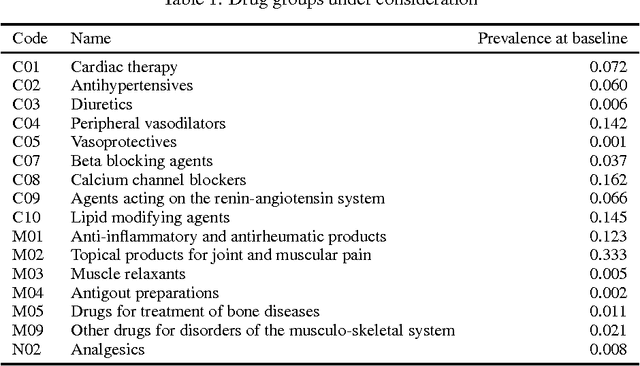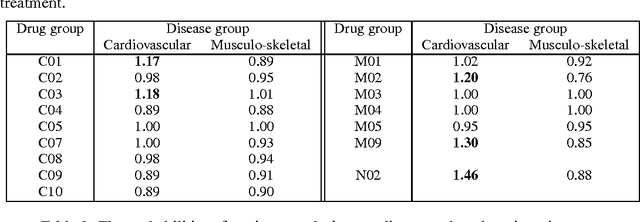Measuring Adverse Drug Effects on Multimorbity using Tractable Bayesian Networks
Paper and Code
Dec 09, 2016


Managing patients with multimorbidity often results in polypharmacy: the prescription of multiple drugs. However, the long-term effects of specific combinations of drugs and diseases are typically unknown. In particular, drugs prescribed for one condition may result in adverse effects for the other. To investigate which types of drugs may affect the further progression of multimorbidity, we query models of diseases and prescriptions that are learned from primary care data. State-of-the-art tractable Bayesian network representations, on which such complex queries can be computed efficiently, are employed for these large medical networks. Our results confirm that prescriptions may lead to unintended negative consequences in further development of multimorbidity in cardiovascular diseases. Moreover, a drug treatment for one disease group may affect diseases of another group.
 Add to Chrome
Add to Chrome Add to Firefox
Add to Firefox Add to Edge
Add to Edge